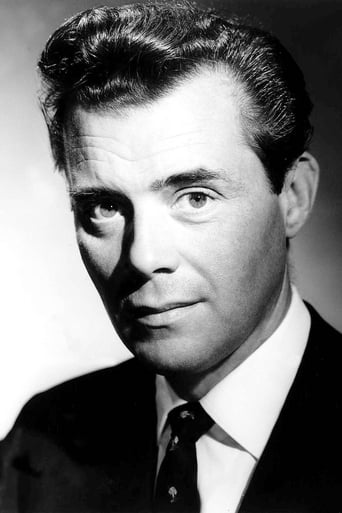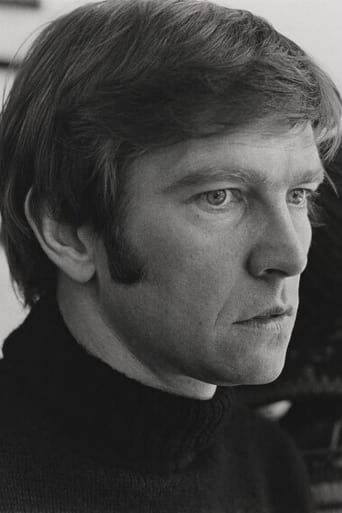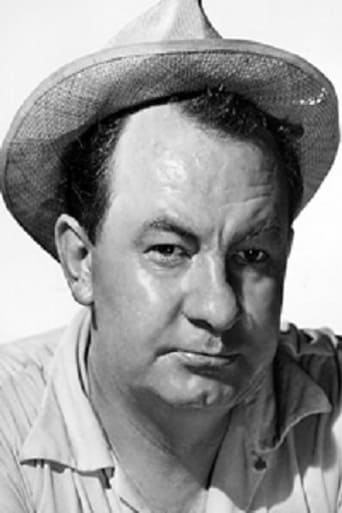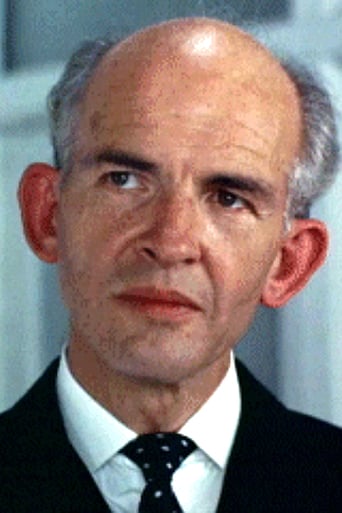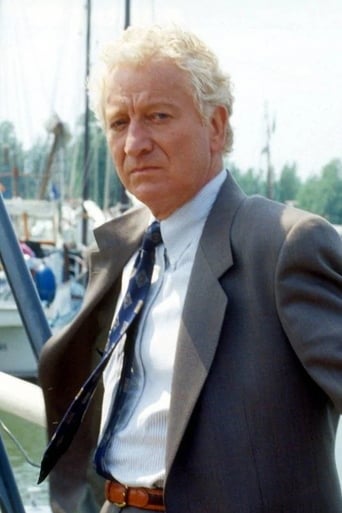Comwayon
A Disappointing Continuation
Janae Milner
Easily the biggest piece of Right wing non sense propaganda I ever saw.
Stephanie
There is, somehow, an interesting story here, as well as some good acting. There are also some good scenes
Lela
The tone of this movie is interesting -- the stakes are both dramatic and high, but it's balanced with a lot of fun, tongue and cheek dialogue.
GusF
Set entirely in the Passchendaele trenches over the course of less than a day in October 1917, this is a brilliantly made scathing indictment of the British military establishment during the First World War. It has a first rate script by Evan Jones and it benefits from extremely strong direction by Joseph Losey, an American who was blacklisted in the 1950s and spent the rest of his career in the UK. The film was made on a comparatively low budget of £100,000 and shot in a mere 18 days but there is certainly no indication of that on screen. That is the difference between good direction and bad direction. It packs a great deal into its 86 minute running time.The film stars Tom Courtenay as a British Army private named Arthur James Hamp who is accused of desertion after he goes for a long walk during a break in the fighting at Passchendaele. Hamp was a volunteer who signed up in 1914, having been dared to do so by his wife and her mother. He is the last surviving original member of his platoon and, as such, has seen a great deal of death and carnage on the Western Front. It soon becomes clear that, contrary to the claims of the borderline negligent medical officer Captain O'Sullivan, he is suffering from severe shell shock. Courtenay gives a wonderful, understated performance as Hamp. For much of the film, he exhibits the characteristic thousand yard stare and often seems to be not entirely aware of his surroundings. This is well illustrated by the fact that he thought that he was walking home to London. He later mentions that he had to remind himself that they were talking about him and not someone else at his court martial. My great-grandfather was a medic on the Western Front for almost the entire war and saw many people with horrific injuries. He suffered from what would now be called Post-traumatic Stress Disorder for the rest of his life, which is unfortunately a very common story.Although Hamp's behaviour sets the events of the plot in motion, the film's protagonist is Captain Charles Hargreaves, the officer who is given the unenviable responsibility of defending him at his court martial. He played in another brilliant performance by a perfectly cast Dirk Bogarde. Hargreaves initially comes across as a stereotypical British officer of the era. When he first meets Hamp, he is impatient and unsympathetic towards him. This is partly because he does not believe that he is very intelligent and partly because he thinks that he should have done his duty. During the court martial, there is initially a sense that he is merely doing his duty in defending him but he becomes genuinely sympathetic towards him as the film progresses. He is extremely upset when he learns that Hamp is to be shot and becomes contemptuous of the military establishment. Hargreaves is really the closest thing that Hamp has to a friend at the end of his life.The rest of the film's entirely male cast is very strong, particularly Leo McKern as Captain O'Sullivan, Barry Foster as Hamp's sympathetic commanding officer Lt. Jack Webb, Peter Copley as the presiding colonel at the court martial, James Villiers as the prosecutor Captain Midgley, Barry Justice as the legal adviser Lt. Prescott and Jeremy Spenser as Private Sparrow. After the court martial, Midgley and Prescott are revealed to be personally sympathetic towards Hamp but they performed the duties with which they were entrusted to the best of their abilities. On the other hand, the colonel is far more antagonistic towards him and finds no reason to disagree with the decision to execute Hamp, which was made by his superiors in order not to reduce morale in the troops as a big push is due with several days.There is also a subplot concerning the daily life of soldiers when they were not fighting. In fact, there is no fighting in the film whatsoever but the sound of artillery in the background can be heard for much of the film. The film does not pull any punches in depicting the mud-soaked, rat-infested trenches and the soldiers' efforts to make their lives bearable by making jokes and playing games. At one point, they hold a mock trial for a rat, which nicely parallels Hamp's only slightly more credible court martial. Losey made an excellent decision when it came to the use of numerous photographs, provided of the Imperial War Museum, of actual trenches, including the corpses of soldiers and a dead horse. The most effective use of a photograph is when Hamp uses the phrase "king and country" and one flashes up of King George V and his cousin Kaiser Wilhelm II together before the war.Overall, this is an excellent film which completely excoriates British military justice of the period. There's an old saying, "Military justice is to justice what military music is to be music," and we certainly get a good indication of that here.
Martin Bradley
"King and Country" was made 50 years after the outbreak of the First World War. At a time when most film-makers might have been expected to pay tribute to the men who fought and died in that conflict Losey, perhaps not unexpectedly, chose a different tact, This is a film about a British private on trial for cowardice when, in fact, what he was suffering from was battle fatigue. The soldier is Tom Courtney and the officer charged with defending him is Dirk Bogarde. It's a depressing, small-scale affair, (by comparison, Kubrick's "Paths of Glory" is positively an epic), very wordy and very well played by everyone. It may not be the best thing either Losey or Bogarde ever did, (though Courtney has seldom been better), but it's a bold and honorable film nevertheless. Unfortunately, the grimness of it's subject means it's seldom revived but it is worth seeking out.
blanche-2
"King & Country," directed by Joseph Losey and released in 1964, is an unrelenting look at war. The World War I drama concerns a young soldier (Tom Courtenay) who is being tried for desertion. It's evident that, after his whole battalion was lost, that the boy was shell-shocked. A Captain Hargreaves (Dirk Bogarde) is brought in to defend him.The film has actual photos of dead bodies from the London War Museum throughout the movie. The setting is freezing cold, wet bunkers with lots of mud. The men have been jaded to death and suffering and at times act brutally.The end of the film is particularly awful, that's the only word I can think of. Not awful as in it's a bad movie, but awful in the situation.Tom Courtenay does an excellent job as a wide-eyed young man who really doesn't realize what he did or what may happen to him as a result; Leo McKern turns in an excellent performance as a no-nonsense officer. Dirk Bogarde is wonderful as the captain who goes to the mat for his client and comes up against a cruel system that seems to have no understanding of or compassion for human frailty.Lots of gross stuff in this movie - imagine actually having to endure it. Excellent directing job by Losey, and a thought-provoking film that you won't forget quickly, even though you want to.
Stephen Tilley (Yellit)
One of the best stage-to-film adaptions ever.Made in black-and-white it captures the futility and claustrophobia of life in the trenches in World War One like no other film. It also gives compelling insights into the British class system.This is a 'must see' film for all genuine students of the medium.

